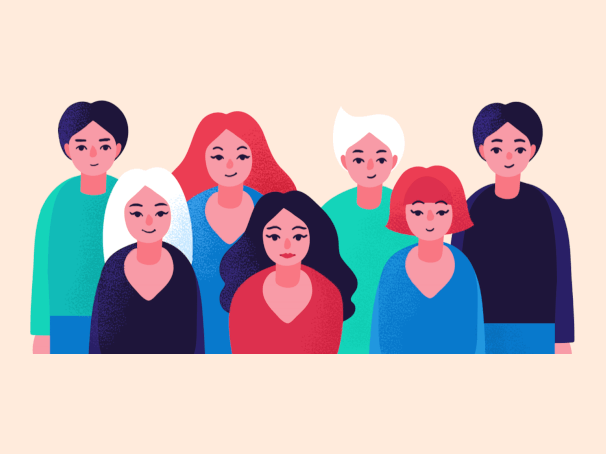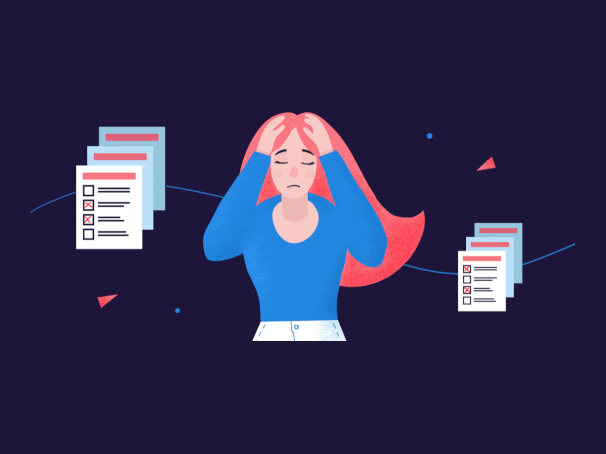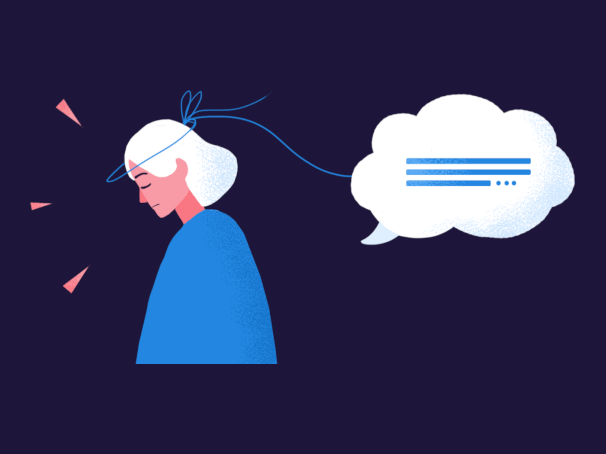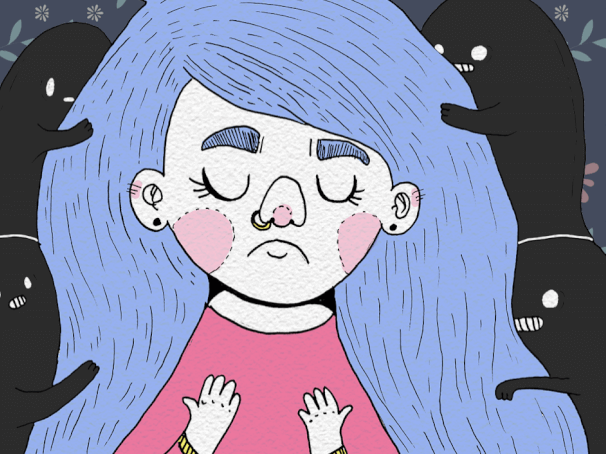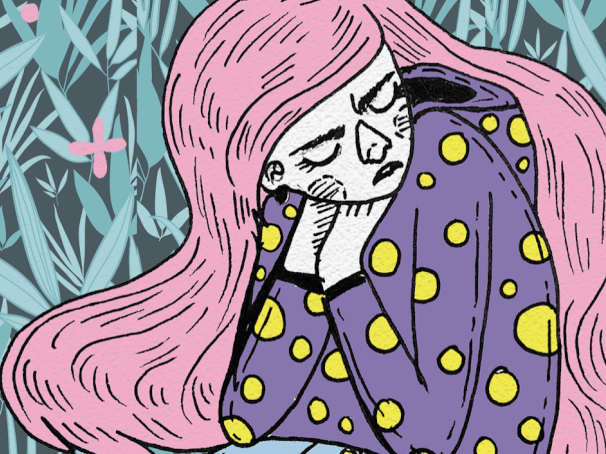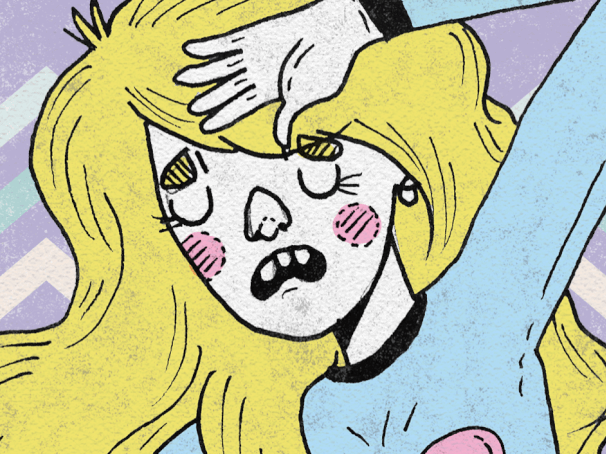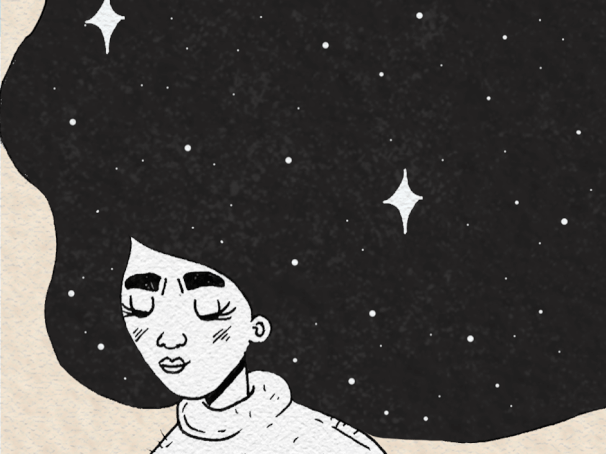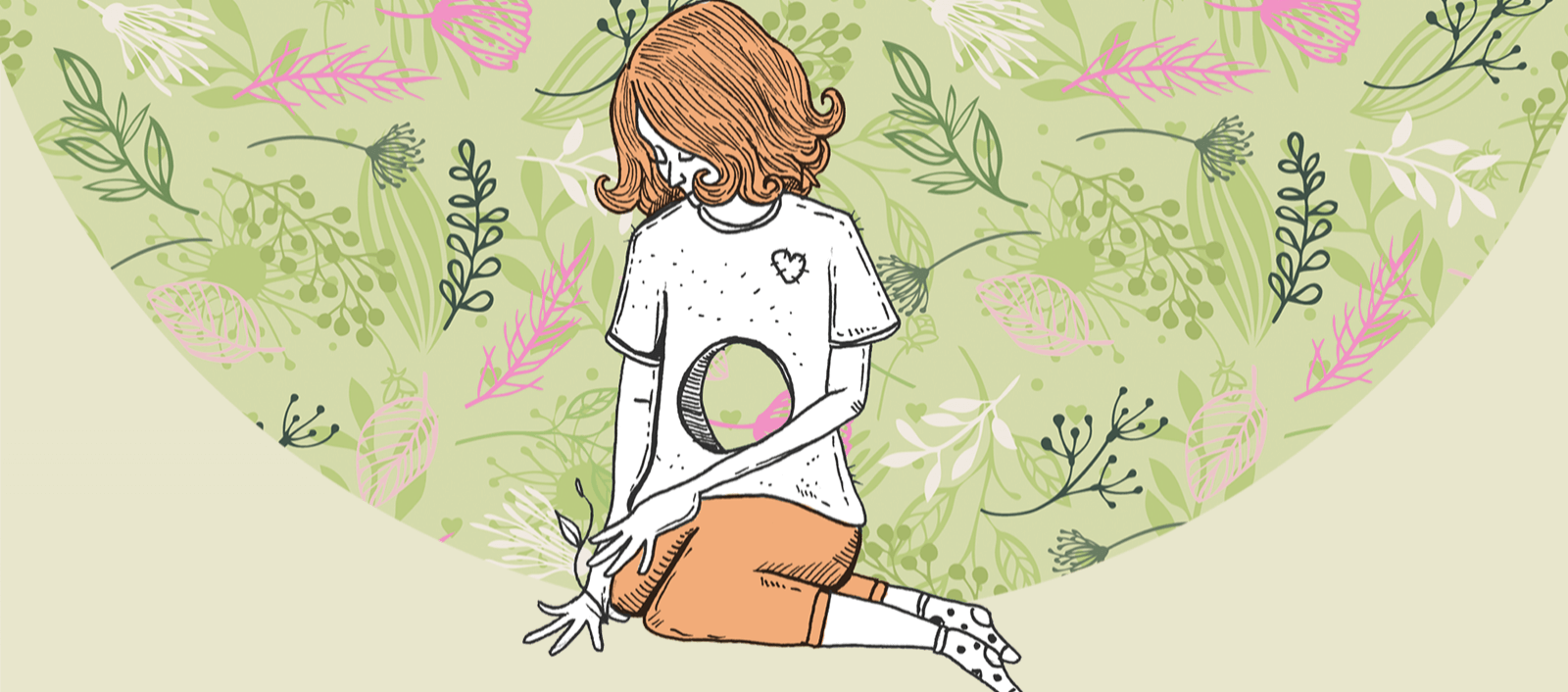
Suddenly something feels very wrong. You feel like you might be losing control. You feel physical symptoms that mimic serious health problems and in some cases you feel as if death or doom is imminent.
这种感觉随着时间的推移而建立起来。它开始越来越压倒。你觉得一个巨大的恐惧时刻,好像这是你的最后一刻,然后突然 - 突然 - 它淡化了。
What you suffered from may feel as severe as a heart attack. But more likely what you suffered from is an anxiety attack. Anxiety attacks are intense moments of pure anxiety that cause real physical symptoms that create intense and devastating anxiety.
Introduction to Anxiety Attacks/Panic Attacks
Anxiety attacks are not a psychological term, so their definition can vary a bit depending on the speaker. But anxiety attacks are often used either synonymously with the term "panic attacks" (or as a way of referring to lighter versions of panic attacks that are a bit less debilitating but still very troublesome).
Panic attacks are short term (usually about 10 minutes) moments of anxiety so severe, it can feel like you are about to die. During an anxiety attack, you'll often experience a host of physical and mental symptoms that can leave you severely frightened and incredibly drained once they pass. These include:
- Rapid and pounding heartbeat。
- Heart pressure。
- Chest pains。
- Sweating or hot/cold sensations。
- Shortness of breath。
- Lightheadedness。
- Muscle weakness要么刺痛。
- Feelings of losing control。
- Intense feeling of doom.
- Depersonalization要么疯狂的感觉。
- Nausea要么stomach discomfort。
- Need to urinate要么defecate。
- 头部压力要么头痛。
It's not uncommon to experience other unusual symptoms during an anxiety attack that all contribute to further fear. Anxiety attacks tend to peak around 10 minutes in and then slowly fade over the course of a few hours, often leaving the individual drained and anxious, and in some cases wondering what went wrong.
这些恐慌很少yabo国际娱乐ne的感觉rvousness or worry. They are very physical and mental events. Those that have never had a panic attack before don’t always realize that they had an anxiety attack. Some people have first-time anxiety attacks so severe that they call the hospital because they think something is going horribly wrong.
什么触发了焦虑症?
Anxiety attacks are unusual, in that they can be triggered under moments of heavy stress or fear, or they can be triggered by nothing at all. Often the first anxiety attack comes at a moment in a person's life when they're experiencing a lot of stress (although not always). But future panic attacks can becaused by almost anything:
- Worry that they’ll have another panic attack.
- Paying too much attention to how the body feels.
- Absolutely nothing.
Once again, it is because anxiety attacks can seem and feel so random that not everyone that has them even knows or believes that they’re having an anxiety attack. Those that have panic attacks too often may even start to develop other anxiety conditions, such ashealth anxiety, because of how difficult it is to feel like their anxiety attacks are real.
没有t everyone that has an anxiety attack once will have it again, however. Some people only experience an anxiety attack because they are under profound stress and exhaustion, or they’re faced with a dangerous situation. For example, if you almost got into a car accident you may experience a panic attack, but only because your anxiety in that situation was so strong that it was uncontrollable.
但许多有恐慌攻击将再次拥有它们。yabo国际娱乐这取决于个人。
What Anxiety Attacks Feel Like
Because of the very physical nature of anxiety attacks, they often are mistaken for some type of serious illness, and in some cases they may create a feeling of health anxiety. For many, the experience of an anxiety attackresembles that of more serious diseases, such as:
- Heart Attacks。
- Multiple Sclerosis
- Lyme Disease
- Brain Tumors
- 心脏衰竭
Those who only experience an anxiety attack once may overcome it and their fears of a health problem may dissipate. For others, the experience of an anxiety attack may be so pronounced that it creates serious health fears that lead to hospitalization or several visits to the doctor.
It should be noted that only a doctor can rule out more serious conditions, so there is no harm in seeing the doctor for both a medical opinion of the causes of your experiences and to ease your mind. But note that when you suffer from anxiety attacks it can be very difficult for a doctor to convince you that you that you are healthy. Treating anxiety attacks is often the only way to find relief.
替代焦虑攻击定义
Earlier we mentioned that "anxiety attack" is not a medical term, but rather a descriptive term for intense moments of anxiety. Most people, including some medical professionals, refer to panic attacks as “anxiety attacks” simply because it is easier for people to understand. When you say “panic,” people tend to think of someone running away from Godzilla. When you term them “anxiety attacks,” people tend to understand it better.
But because anxiety attack is not a medical term, not everyone uses it the same way. Some people use anxiety attack as a way of describing severe symptoms of other anxiety disorders. For example, those with obsessive-compulsive disorder may have an "anxiety attack" when they encounter a trigger of extreme anxiety that forces them deep into their compulsions. Those with an upcoming test in school may call their significant worry about the test an “anxiety attack” even though they’re really just talking about being very nervous.
Keep this in mind when people describe anxiety attack, as the term may lead to a bit of miscommunication. For the purposes of this article, however, we’re talking about panic attacks, because panic attacks are a very real, very common anxiety problem that most people are referring to when they say they have these attacks.
为什么焦虑发作会导致这些身体症状?
One of the most common reasons that anxiety attacks are such a frightening experience is because they cause physical symptoms that mimic more serious diseases. This causes many people to become incredibly fearful for their health, believing that there is no way something like anxiety can lead to such a physical response.
但焦虑导致了一系列不同的身体反应,可以解释大部分焦虑症状,以及最常见的原因是过度通气。
什么是hyperventilation?
尽管您的身体需要氧气生存,并且当它在血液中用完时将氧气转化为二氧化碳,但您的身体也预计您的循环系统中的健康量的二氧化碳也是如此。过度通气是呼吸太快或不正确的行为,使您在呼吸过多的二氧化碳时服用过多的氧气。
Interestingly, during this time it may feel as though you're not getting enough air, and your instinct may be to take deeper breaths. But by responding to that sensation by trying to take in more air, you're actually making your hyperventilation worse, which is why those that try to get deeper breaths often feel their symptoms getting worse, causing further panic.
当您的血液中没有足够的二氧化碳时,您就会体验焦虑症的症状,包括:
- Lightheadedness
- Chest pains
- Rapid heartbeat
- 言语不清
- Numbness/tingling in the extremities
- Shortness of breath
- Dizziness and more
请注意,这些症状中的每一个都与患有严重焦虑的症状相同,这就是为什么它经常感觉像“攻击”,以及为什么症状感觉如此的身体。他们互相建立,创造一种感觉就像一些非常错误的体验。
The most likely cause of hyperventilation is breathing too quickly, which is a common response to anxiety. But it's not the only cause either. You may also hyperventilate because:
- You Breathe Poorly in General患有焦虑的人往往会在呼吸中改变,导致它们以一种少于其身体的方式呼吸,无论是通过过多的空气或以低效的方式呼吸。焦虑症也可以造成缺陷的呼吸习惯。这可能是人们经历焦虑症似乎无处不在的原因之一,因为即使在没有焦虑时,它们也可能是过度通行。
- 你想到你的呼吸Another common cause of hyperventilation occurs when you think too often about your breathing. Your body generally takes in as much air as it needs, often with very shallow breaths because your body only needs a very small amount of oxygen. Those that think about their breathing cause their breathing to be under their own control and many people will then try to take in deeper breaths than their body needs.
因此,在压力和焦虑期间迅速呼吸是人们过度通气的最常见原因,这不是唯一的原因。
Hyperventilation from anxiety is不危险。All your body needs to do is regain its balance, which it will do once your anxiety attack starts to fade. But the symptoms of anxiety certainly feel dangerous at the time, which explains why so many people experience a rush of anxiety and panic.
Other Causes of Anxiety Attack Symptoms
过度通气不是焦虑症状症状的唯一原因。焦虑和压力有倾向于使您的身体体验非常奇怪的感觉 - 通常与人的人不同的感觉。有些人可能会觉得他们无法抬起头,或者他们的大脑出现了问题 - 这些都是焦虑压力可能引起的所有问题。
此外,焦虑趋势使大脑专注于否则是正常的感觉。这是过度敏感的结果 - 你的思想是如此调整在你的身体中,它注意到非常小的感觉,否则会忽视没有焦虑的人。
最后,恐惧的焦虑sympto攻击ms can also trigger the symptoms. It's unclear why this occurs, but most likely it is psychosomatic in some way (caused by your mind).
How to Control an Anxiety Attack
在他们开始之后焦虑症难以停止,但有技术可以帮助降低他们的严重程度。如果你相信你有或即将有焦虑症,请尝试以下内容:
- 提醒自己这是焦虑It's not going to stop an anxiety attack, but remind yourself that you're having one. The symptoms you're experiencing are very real and very stressful. In some cases, they may even be painful. But they'll go away when the attack is over. The more you worry that something is wrong with your health, the more likely the attack will be worse.
- Controlled BreathingRemember that hyperventilation is the most common cause of anxiety attack symptoms. If you can stop hyperventilating, the symptoms will decrease. Take slower breaths and don't worry about trying to expand your chest. Breathe in through your stomach and breathe out very slowly. It can take a while to reduce the sensation that you need to get a deep breath, but it should stop the symptoms from getting worse.
- Hold Your Breath at PeakFor 2 or three seconds at the peak of each breath, hold your breath before breathing out. Remember, you want to give your body back a healthy balance of carbon dioxide, so holding your breath for a short time (not too long, but a couple of seconds) can increase CO2 in your body.
- Tell PeopleIf you're out with others, don't be shy about your anxiety attack. Holding it in causes you to think about it too much, and that can increase your anxiety and feelings of doom. It may be a bit embarrassing to tell people that you're suffering from a panic attack, but not telling people will not make the anxiety attack any better, and talking about it to others can reduce its severity.
- Call SomeoneIf you're alone, calling someone on the phone and just talking to them can be a tremendous help. That's because calling someone acts as a distraction. Remember, anxiety attacks are still caused by your mind and thoughts. When you're on the phone talking with someone, you're taken out of your own thoughts and engaging in conversation. This can have a powerful effect on the severity of your attack.
- Other Distractions你或e taken "out of your own head," the less severe your anxiety attacks will be. Try other things like going for a speed walk (if your legs are feeling strong enough), drinking water, turning on the TV, and anything else that keeps you from focusing too much on the symptoms.
Anxiety attacks are very difficult to stop once they've started, but by using the above tips you can reduce the severity. The less severe your panic attacks, the less you'll fear them, and the easier they'll be to control.
Anxiety Attack Prevention
Once your anxiety attacks are under more control, you'll need to take steps to prevent them. Anxiety attacks can be one time things, but they're still indicative of a larger anxiety problem and many people find that their anxiety attacks become recurring.
Prevention is about three things:
- Controlling your overall anxiety and stress.
- Controlling the way you react to severe stress.
- Controlling the way you respond to anxiety attack symptoms.
Going to the doctor is always a good place to start. Make sure that you've had a full physical so that you will have greater peace of mind about your health. Try to stay away from panic attack medications, however - most cause severe fatigue and other symptoms that make them less than ideal for daily use.
Start exercising as well. Exercise is a known cure for stress - one of the most effective ways to relieve your daily anxiety. It's also a healthy way to retrain your breathing. When you run, your body breathes as efficiently as possible, and this can help your body re-learn to breathe correctly.

